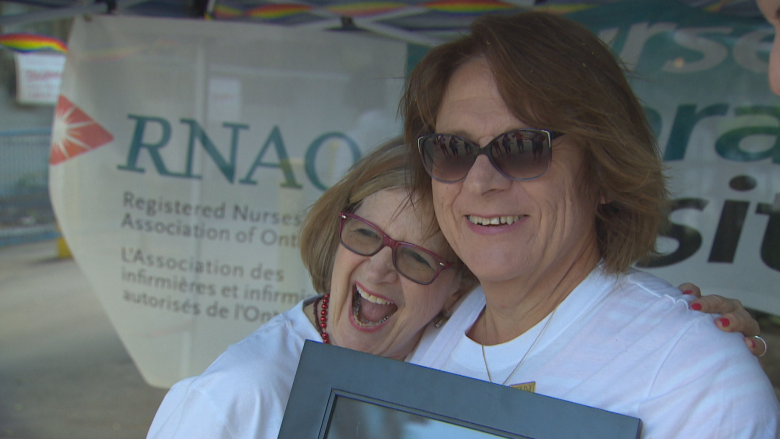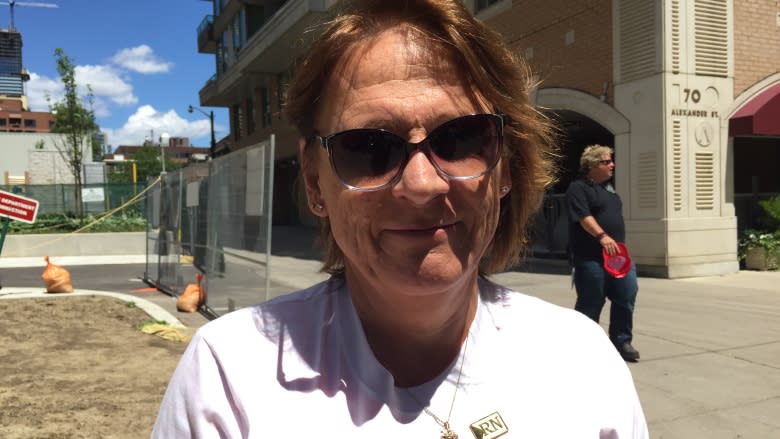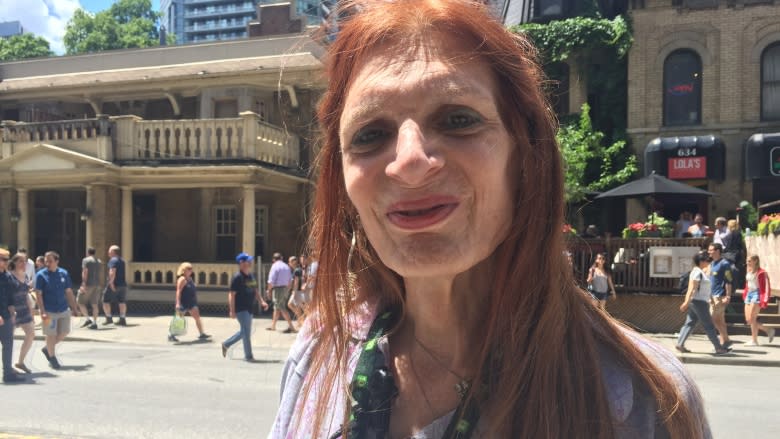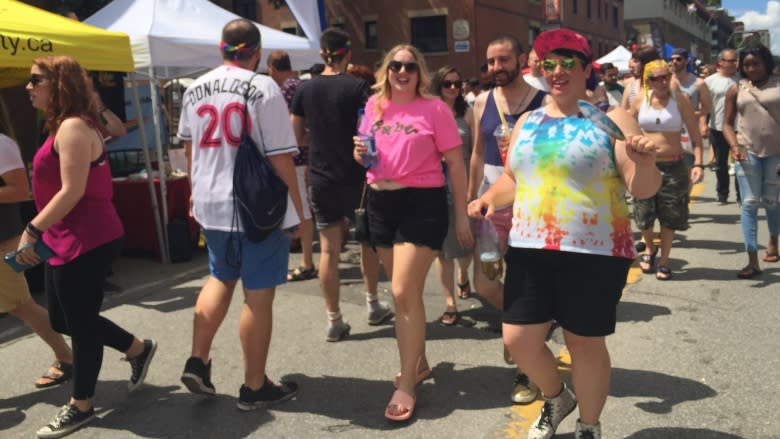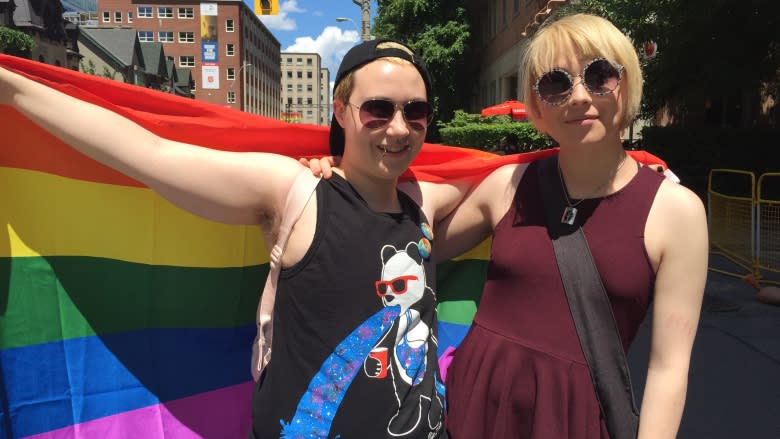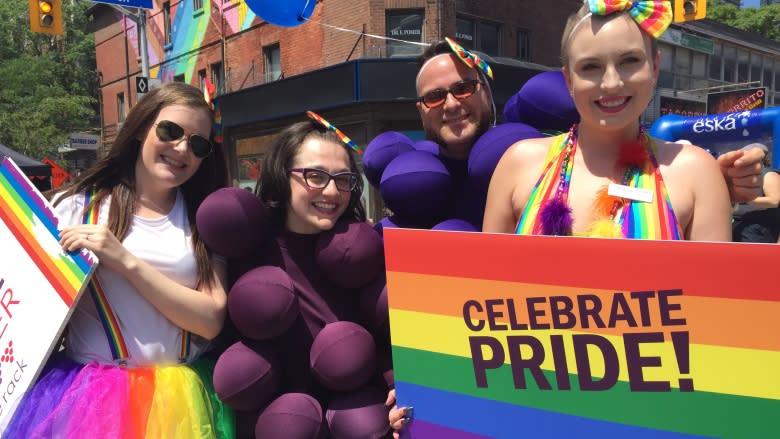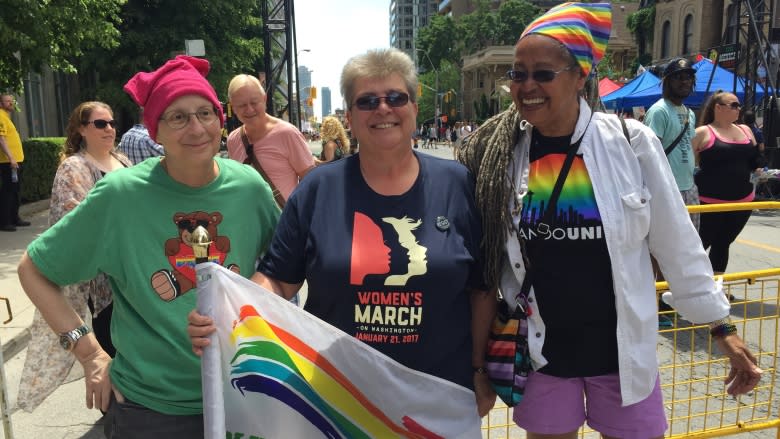Transgender nurse who waited 50 years to come out attends her 1st Dyke March
Kimberly Gouldstone has been a nurse, cop and private investigator.
And for decades, she was also a husband and father.
Gouldstone, who will turn 60 this year, came out as transgender only last January. She says she was supported by her small community near Port Dover, Ont.
"It's been a whirlwind," she told CBC Toronto at this year's Dyke March on Saturday afternoon, where she was handed an award for her work as a nurse.
"I should have done it many, many years ago."
Gouldstone describes the transitioning process as emerging from "a tunnel I didn't know I was in."
There are still tough days, but overall Gouldstone says she's finally content. Before coming out, "I didn't know what happiness was," she said. "I'm ready to start living."
Self-discovery supported by Pride
"It blows your mind, the acceptance and love that you feel," Gouldstone said of her first Pride experience.
"Acceptance doesn't really explain it. It's coming from all sides. No one's covering anything up, no one's hiding. You can just be yourself, whoever you are."
Gouldstone regrets shying away from LGBT activism for so long.
She's still critical of sexual orientation and gender categories, and thinks people should "forget the labels" and accept themselves without reaching for strict definitions.
But Gouldstone acknowledges self-discovery as a constant challenge. "Even after all this time, I'm still finding out on a daily basis who I am," she said.
"But what I've accepted now is that I'm a trans woman, that's what I will always be. That's me for the rest of my life."
Dyke March still political, says MPP
Since its inception in 1996, the Dyke March has branded itself a political enterprise.
"As women and as dykes, we still don't have equal pay for equal work, we don't have childcare," said MPP Cheri DiNovo, a longtime LGBT rights advocate. "Women can never have equality until they have those two things."
"We've had a number of instances around the city in terms of healthcare, in terms of access to facilities, where discrimination has been evident," DiNovo said. Right now, she added, "it's up to the individual to fight that."
The Dyke March, she says, is a way to affirm a sense of community for those people.
"There are thousands on the Dyke March that are backing you up" if a lesbian or trans woman encounters discrimination, she said.
"Talk to us. Because we're there for you."
Bill C-16 adds gender identity, expression to list of rights
Dyke March organizer Davina Hader noted the prevalence of gender-nonconforming lesbians in the Toronto community and the importance of legislation to safeguard gender identity.
Bill C-16, which offers that protection, received royal assent this week.
"We have a high level of gender fluidity" in the LGBT community, said Hader. "Bill C-16 protects that. It protects people who want to identify the way they feel best."
Like Gouldstone, Hader embraced personal reasons for marching, but maintained the Dyke March has stayed true to its political roots.
"We don't parade," Hader said. "People just come as who they are."
Correction : A previous version of this story listed Kimberly Gouldstone's last name as "Terry."(Jun 24, 2017 8:33 PM)

